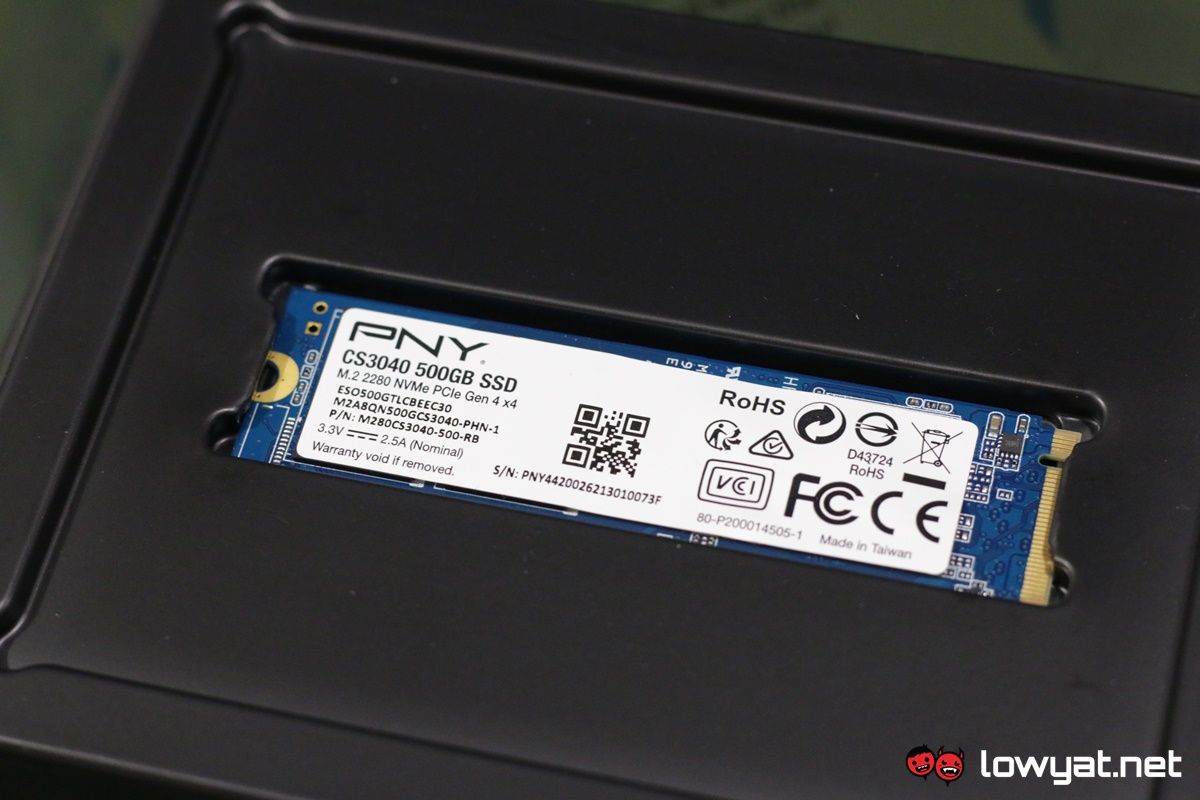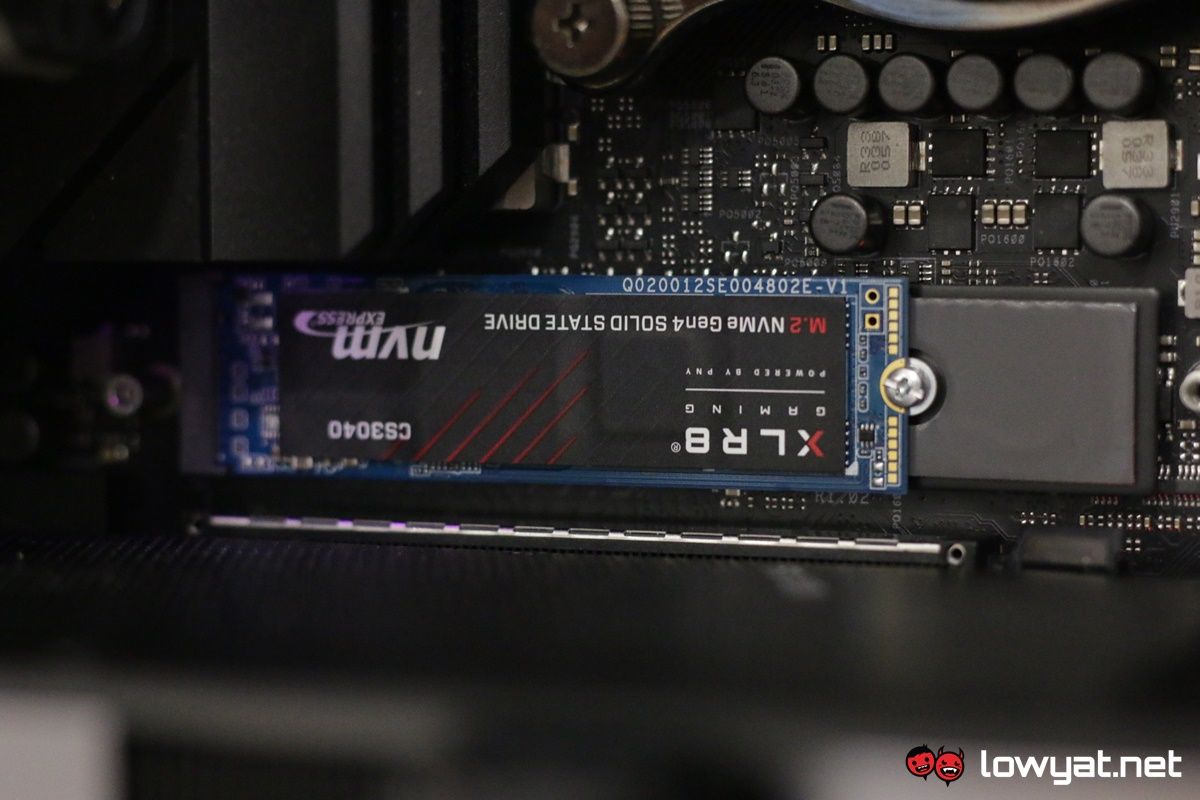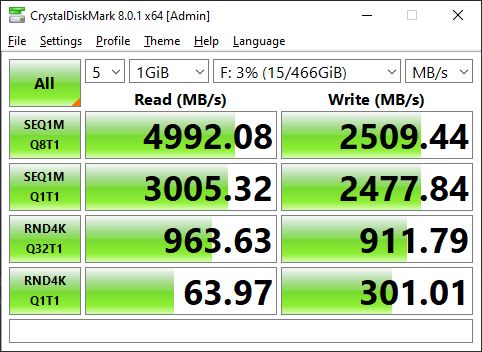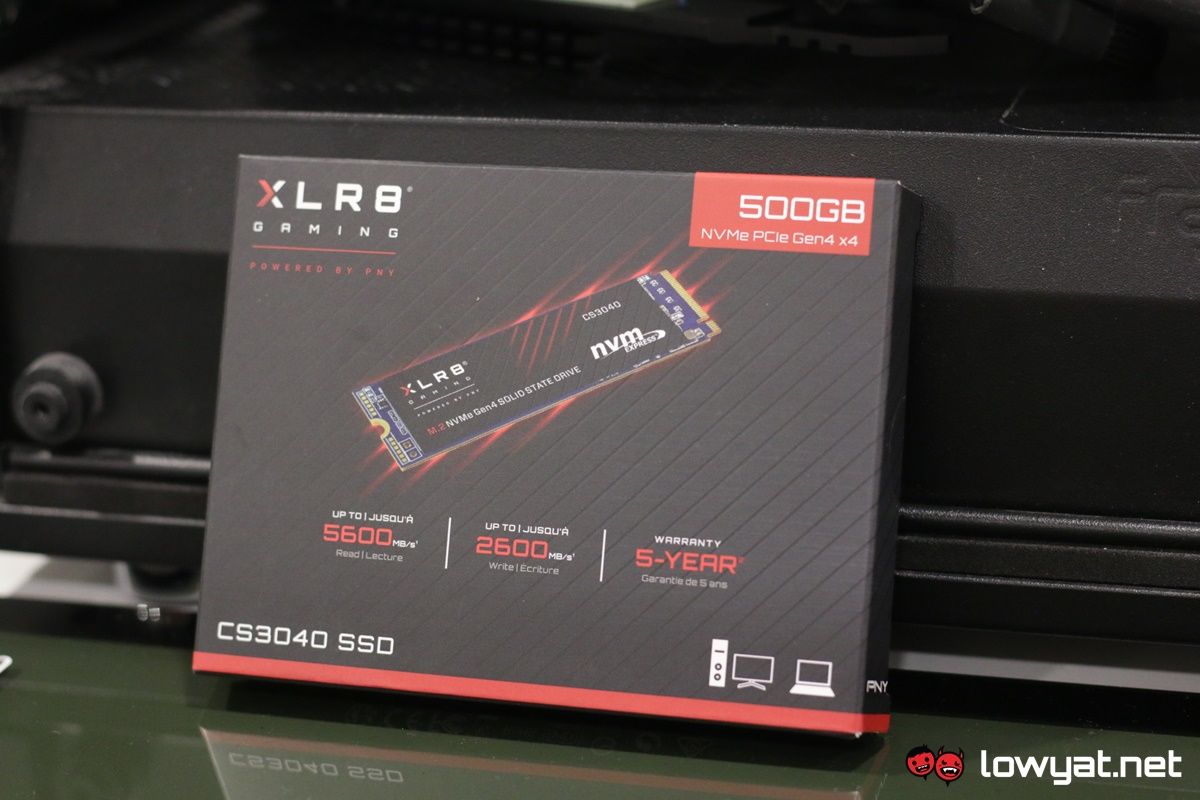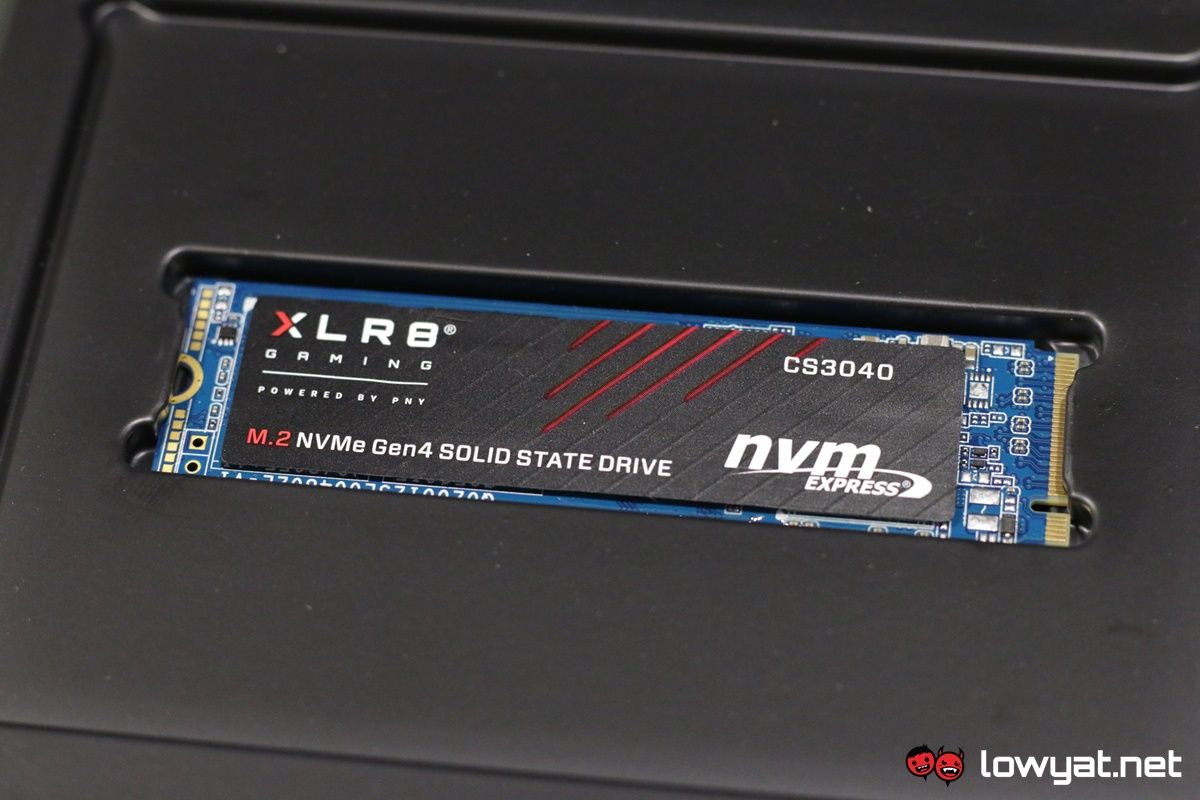What Is It?
Like almost all NVMe PCIe 4.0 SSDs on the current market, the CS3040 comes in the standard M.2 2280 form factor. Specs-wise, it is equipped with a Phison E16 NVMe controller, four 256 MB BiCS4 modules from Kioxia, plus 96 TLC layers. Physically, the CS3040 is also sold in a variant that has a massive heatsink attached to it, although at the time of writing, PNY’s official distributor did not inform if that model is available for purchase in Malaysia.
Is It Any Good?
For the record, the CS3040 unit I have is the 500GB model and to bench it, I tested the SSD on two systems: our AMD X570 testbed, and our recently acquired Intel Z590 system that, as you all know, finally supports the PCIe 4.0 interface. The end result is…well, practically the same on both platforms. While PNY advertises the CS3040’s sequential read and write speeds for the 1TB variant at 5600MB/s and 4300MB/s respectively, the average speeds for the 500GB model are slightly lower than that. Specifically, average read speeds are capped at5000MB/s, while the average write speeds go higher than 2500MB/s, although it does spike closer to 2700MB/s when I installed it on to the X570 testbed.
In addition, the starting price for the CS3040 is actually relatively reasonable at RM459, while the 1TB version retails at RM829.
The Bad Stuff. Tell Me.
Frankly, there is little to suggest that the CS3040 would be a bad SSD investment, but if I were to pick a bone with the brand, it would be that I wish both brands and its distributor, Fusion Tech, would make the higher capacity 2TB and 4TB models available in Malaysia as well, instead of limiting its availability to just the 500GB and 1TB models.
Should I Buy It?
At a starting price of RM459, there is little doubt that the PNY XLR8 CS3040 is aggressively priced and finds itself up against the likes of Corsair’s MP600 Gen4 SSD lineup and Gigabyte’s Aorus Gen4 SSDs too. On that note, and if one were to consider the 1TB model to be a part of their gaming PC, I would most likely recommend this brand, purely from a price-to-performance standpoint.
